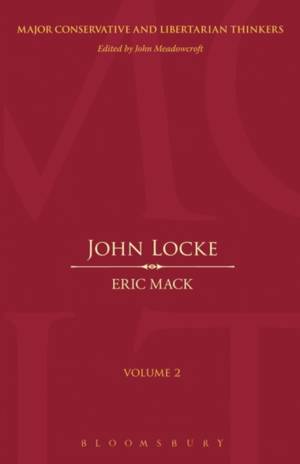
- Afhalen na 1 uur in een winkel met voorraad
- Gratis thuislevering in België vanaf € 30
- Ruim aanbod met 7 miljoen producten
- Afhalen na 1 uur in een winkel met voorraad
- Gratis thuislevering in België vanaf € 30
- Ruim aanbod met 7 miljoen producten
Zoeken
€ 390,45
+ 780 punten
Uitvoering
Omschrijving
John Locke (1632-1704), one of the great philosophers, is probably best known for his contributions to political thought. In this outstanding volume, Eric Mack explains Locke's philosophical position, placing it in the tumultuous political and religious context of 17th century England. For Locke, entering into political society did not involve giving up one's natural rights, but rather transferring to governmental authority the job of protecting those rights. In this rigorous critical analysis, Mack argues that Locke provides an impressive - if not decisive - philosophical case for the view that individuals have natural rights to life, liberty and property, despite the existence or actions of any political authority.
Specificaties
Betrokkenen
- Auteur(s):
- Uitgeverij:
Inhoud
- Aantal bladzijden:
- 176
- Taal:
- Engels
- Reeks:
- Reeksnummer:
- nr. 2
Eigenschappen
- Productcode (EAN):
- 9780826429810
- Verschijningsdatum:
- 1/05/2009
- Uitvoering:
- Hardcover
- Formaat:
- Genaaid
- Afmetingen:
- 142 mm x 218 mm
- Gewicht:
- 317 g

Alleen bij Standaard Boekhandel
+ 780 punten op je klantenkaart van Standaard Boekhandel
Beoordelingen
We publiceren alleen reviews die voldoen aan de voorwaarden voor reviews. Bekijk onze voorwaarden voor reviews.








